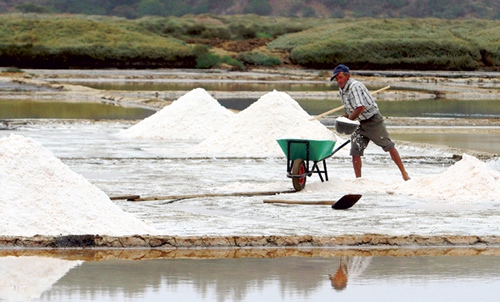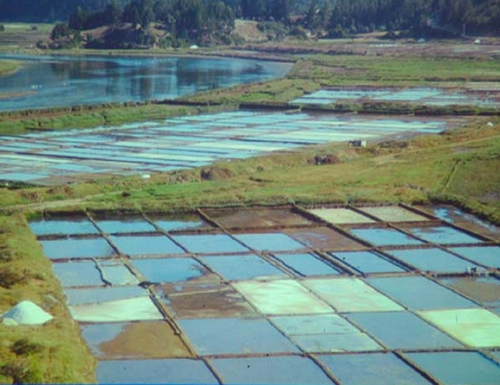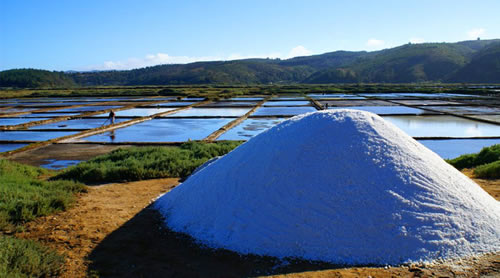Or the hookers!
Pushers of dunnycarts.
Nobody’s taking care of the kids?
Whatever follows civilization’s not going to last very long, in that case.
– I strongly suspect that the people who will be most useful, and a significant percentage of those who do best, will be the ones who were or rapidly switch to jack*-of-all-trades. People used to farm and take care of the kids and repair things when it rained and sometimes also run the town meeting. Even warlord used to be, in a lot of places, a sort of temporary position – somebody’s got to be in charge of this fight! but when the fight’s over they’re expected to get something else done.
[*please consider that a non-gender-specific jack]
I don’t think this is true. You’re talking about somewhere from 5 to 25 lbs of gold, that’s not a massive amount but it also isn’t something you can just slip in your pocket.
If you’d said a backpack, I’d agree.
Nah, we can always make more of those!
I remember starting a thread a long time ago pondering how people long ago used to pay for stuff (I suppose before ATMs, the internet, electricity or really any way to transmit financial information to your location ahead of you). In film and television, people always seem to travel around the medieval countryside, stopping at various inns for food and lodging, often indefinitely (unless the story calls for them to be suddenly penniless). Sure, if you’re some lord traveling with their entourage and a bunch of guards and your whole baggage train behind you that makes sense.
In the event of a civilization collapse, I wonder how long dollars and gold would be viable currency. OTOH, they aren’t printing any more currency and it has no inherent value without government backing it. OTOH, most people probably don’t want to have to constantly figure out the exchange rate between shotgun shells, cans of beans, and other stuff the might want to trade.
Maybe salt will make a comeback. Relatively uniform if it’s pure, tradeable by weight, usually not available just anywhere, and necessary for survival on multiple levels.
really any way to transmit financial information to your location ahead of you
Correspondence, especially financial correspondence, is some of the oldest writing we have. Like , “3 millennia BCE” old. And parts of the Code of Hammurabi deal with promissory notes.
The Ancient Greeks had banks, and the keeping and advancing of money was frequently handled by temples and cultic sanctuaries. In the Middle Ages, this would similarly have been handled by the Church, for affiliated people, as well merchant’s guilds and the like for others. The kind of people who were going to travel with any regularity would have various possible ways to deal with the issue.
Probably something similar would arise in a post-apocalyptic situation - some institution (likely religious, IMO) would act as intermediary and surety for that kind of thing.
Probably something similar would arise in a post-apocalyptic situation - some institution (likely religious, IMO) would act as intermediary and surety for that kind of thing.
The problem is, as always, time. It takes time to build up enough trust in an institution so that people will use it for such things. Immediately post-apocalypse, trust will be in even shorter supply than food, I think.
The problem is, as always, time. It takes time to build up enough trust in an institution so that people will use it for such things.
They would have to. The shoot-em movies and games are a fun idea, but you are going to have to build a society out. You can’t stay at zero trust, it’s impossible to survive that way.
It takes time to build up enough trust in an institution so that people will use it for such things.
If it’s something with continuity from the Before Times, that would help.
Maybe salt will make a comeback. Relatively uniform if it’s pure, tradeable by weight, usually not available just anywhere, and necessary for survival on multiple levels.
dont think so … salt had its moment b/c of huge limitations of mobility… those would not apply, b/c prob. 90% of all roads would still be there …
you could still realistically get 50kg salt on a bicycle/trailer moved 100km per person and day … 500 years ago, not so much for lack of decent roads
and today a way highter % of people live on the shores and could “mine” free salt
dont think so … salt had its moment b/c of huge limitations of mobility… those would not apply, b/c prob. 90% of all roads would still be there …
you could still realistically get 50kg salt on a bicycle/trailer moved 100km per person and day … 500 years ago, not so much for lack of decent roads
and today a way highter % of people live on the shores and could “mine” free salt
Depending on just how severely civilization collapses, those nice smooth roads might not last. Not to even mention how overland trade is hampered by balkanization and banditry.
As for sea salt, “free” means the labor to carry out a multi-stage evaporation process to maximize the sodium chloride content over all the other salts present. And not all coastlines are sufficiently dry and sunny to make this economical.
If most people are dead, the contents of supermarkets and warehouses will still be available to the survivors, and those may stock more salt than the survivors need.
Depends on the nature of the collapse. A pandemic plague is the “best” in terms of resources remaining to the survivors; nuclear war is probably the worst.
and today a way highter % of people live on the shores and could “mine” free salt
Depending on the catastrophe, all those people on the shores might well have a much lower % of survivors.
As for sea salt, “free” means the labor to carry out a multi-stage evaporation process to maximize the sodium chloride content over all the other salts present. And not all coastlines are sufficiently dry and sunny to make this economical.
Seawater is too salty to drink, but it is only about 3.5% salt. So you are going to be boiling a lot of water to recover a small amount of salt. If your heat source is firewood, you are going to be cutting a lot of wood, hopefully near your sea water. If you are near where a river dumps into the ocean you need to get a few miles away before you collect your water.
See Lewis and Clark expedition (Corps of Discovery). They had a team of guys boiling water.
The Lewis & Clark Salt Works (U.S. National Park Service) (nps.gov)
I would also be concerned about people who don’t live near the seashore getting enough iodine.
The reason table salt is iodinated is because it’s the one food product that everybody on earth uses; that was also David Letterman’s mother’s cause de celebre, because she remembered people having goiters and being disabled from iodine deficiency there in Indiana, in the Depression era. Something like a penny’s worth of iodine will fortify a ton of table salt.
A pandemic plague is the “best” in terms of resources remaining to the survivors; nuclear war is probably the worst.
Not necessarily. Even a broad nuclear attack will mostly target military bases, production facilities, and urban areas, leaving a lot of natural resources intact (provided they survive the firestorms). Depending on the scale of the exchange there may be large areas where the population is essentially unaffected, at least initially, and these are likely to be rural areas where people are already largely self-sufficient (to the extent anyone in modern society is) and with enough critical mass of labor and skills to maintain or rebuild some pre-Industrial replica of society. A a highly infectious global pandemic with a sufficiently large infection fatality rate (IFR) on the other hand will likely take out large swaths of population everywhere, leaving less than a critical mass of people and everyone too spread out to effectively organize.
Modern ‘resources’ as we know them will be largely useless just because there will not be an infrastructure to support or maintain them. Without a sources of electrical power, all electrical devices will become useless, and even if you have a vast stockpile of solar panels and an inverter or solar generator, these will eventually degrade or be damaged without the ability to replace them. Substances like concrete or structural steel might seem useful but the difficulty in moving them from one place to another without heavy automobiles or roads will make natural materials found in and around the area of construction more valuable. Medicines, batteries, anything with synthetic elastomeric seals or isolators, et cetera will all degrade with time and exposure with no way to produce more. Unless there is a sufficient skill base, labor pool, and enough manufacturing capability to re-establish industrial production promptly, it is almost axiomatic that society would fall back to the pre-Industrial standard including food production, animal husbandry for ‘heavy’ labor, and mostly natural materials supplemented by what can be profitably extracted or recycled from existing manufactured items. And without easy access to energy in the form of coal and oil, the ‘carbon pulse’ that powered the rise of the Industrial era will look very different.
Stranger
Depending on the catastrophe, all those people on the shores might well have a much lower % of survivors.
more salt per survivor, then …
/s
Seawater is too salty to drink, but it is only about 3.5% salt. So you are going to be boiling a lot of water to recover a small amount of salt. If your heat source is firewood, you are going to be cutting a lot of wood, hopefully near your sea water. If you are near where a river dumps into the ocean you need to get a few miles away before you collect your water.
See Lewis and Clark expedition (Corps of Discovery). They had a team of guys boiling water.
you are overthinking things, gringo style
… people, a 100 miles from me dont use firewood, they use one of those fancy fusion reactors! … like their fathers and grandfathers did…
again, I don’t agree on salt becoming relevant … salt is NICE to have but not NEED to have, and ultimately not that more important than pepper or tulips ![]() .
.


